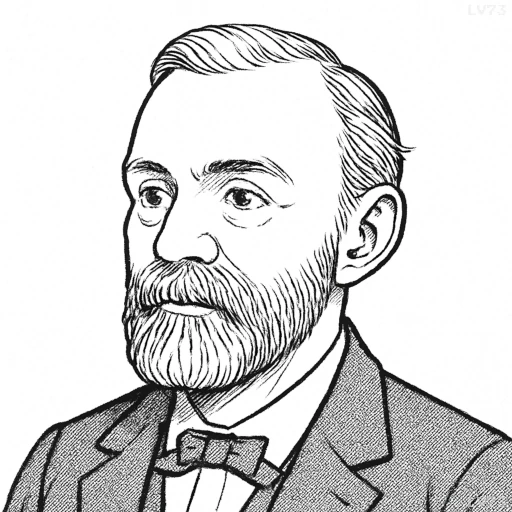“Worry is the stomach’s worst poison.”

- October 21, 1833 – December 10, 1896
- Born in Sweden
- Inventor, chemist, businessman
table of contents
Quote
“Worry is the stomach’s worst poison.”
Explanation
This quote emphasizes the profound connection between mental health and physical well-being, suggesting that excessive worry can harm the body, particularly the digestive system. Alfred Nobel, who suffered from health issues throughout his life, likely understood this interplay firsthand. His remark reflects a recognition of the damaging effects of stress, a concept that modern science has since validated.
Historically, the idea that emotions influence physical health was not new, but Nobel’s statement predates the detailed understanding of stress-related disorders. During his time, medicine was beginning to explore psychosomatic illnesses, though the mechanisms were not yet well understood. Nobel’s personal experiences with isolation and intense intellectual pursuits may have given him a keen awareness of how worry could manifest physically.
In modern contexts, this idea is widely supported by research showing that stress and anxiety can exacerbate conditions like ulcers, acid reflux, and irritable bowel syndrome. Nobel’s observation serves as a reminder that managing worry is essential not just for mental peace but also for maintaining physical health. Practices like mindfulness, therapy, and healthy lifestyle choices are contemporary ways to address the “poison” of worry and its impact on the body.
Would you like to share your impressions or related stories about this quote in the comments section?


